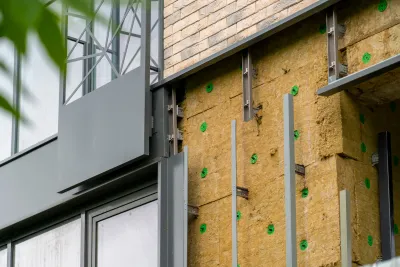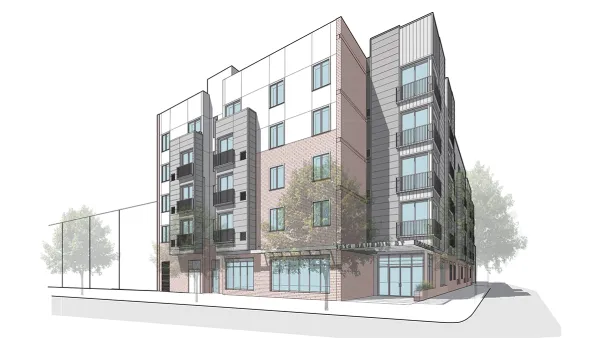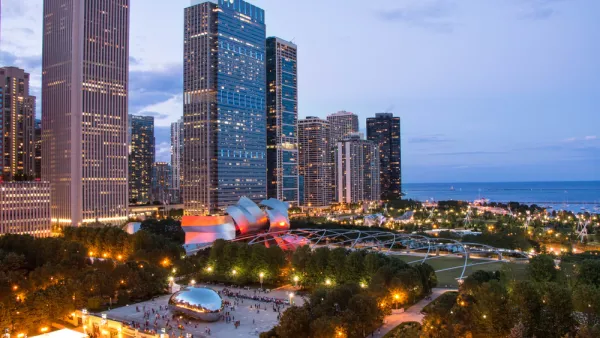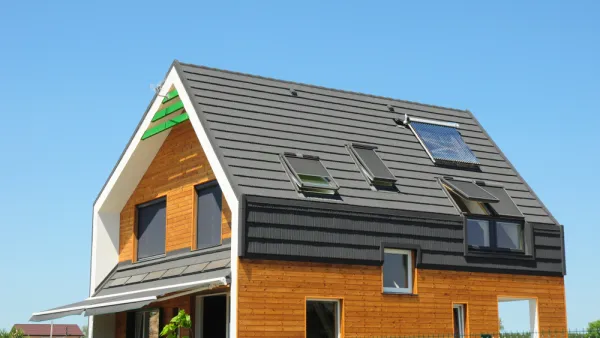Developers in Chicago and around the country are taking notice of a design standard that encourages energy efficiency and sustainable materials.

Multi-family housing developers in Chicago are embracing Passive House design standards to lower their carbon footprints and reduce costs. As Lizzie Kane reports in the Chicago Tribune, “Multifamily developers, particularly those building affordable housing, in Chicago have begun to embrace Passive House design in the last few years thanks to local industry professionals advocating for changes in the city and state building energy codes, as well as buy-in from ComEd, the primary energy provider in the state.”
“Passive House design focuses on making a building tightly sealed by including features such as triple-paned windows and wraparound insulation to keep outside temperatures from creeping in (and noise too), as well as ventilation systems to keep air quality fresh,” Kane explains.
The Passive House standard, originally geared toward single-family homes, is being implemented on around 275 multi-family projects nationwide, according to a study from the Passive House Network. “The study said in order to speed up the pace of Passive House development, local, state and federal policymakers should finance incentive programs, offer professional training, increase provisions in state affordable housing programs and amend compliance rules in energy codes.” Passive House was recently added to Chicago’s Sustainable Development Policy and the city’s building code.
Kane describes other city and state policies in the works that will incentivize the Passive House standard and make it easier to build low-impact, efficient buildings at lower cost. Outside of Illinois, “Massachusetts, New York, Pennsylvania and Connecticut lead the way in multifamily buildings being developed to meet the Passive House standard, with each state having more than 50 properties in the pipeline or already completed, according to Phius’ database.”
FULL STORY: Passive House design is coming to Chicago’s multifamily housing industry

Analysis: Cybertruck Fatality Rate Far Exceeds That of Ford Pinto
The Tesla Cybertruck was recalled seven times last year.

National Parks Layoffs Will Cause Communities to Lose Billions
Thousands of essential park workers were laid off this week, just before the busy spring break season.

Retro-silient?: America’s First “Eco-burb,” The Woodlands Turns 50
A master-planned community north of Houston offers lessons on green infrastructure and resilient design, but falls short of its founder’s lofty affordability and walkability goals.

Test News Post 1
This is a summary

Analysis: Cybertruck Fatality Rate Far Exceeds That of Ford Pinto
The Tesla Cybertruck was recalled seven times last year.

Test News Headline 46
Test for the image on the front page.
Urban Design for Planners 1: Software Tools
This six-course series explores essential urban design concepts using open source software and equips planners with the tools they need to participate fully in the urban design process.
Planning for Universal Design
Learn the tools for implementing Universal Design in planning regulations.
EMC Planning Group, Inc.
Planetizen
Planetizen
Mpact (formerly Rail~Volution)
Great Falls Development Authority, Inc.
HUDs Office of Policy Development and Research
NYU Wagner Graduate School of Public Service




























